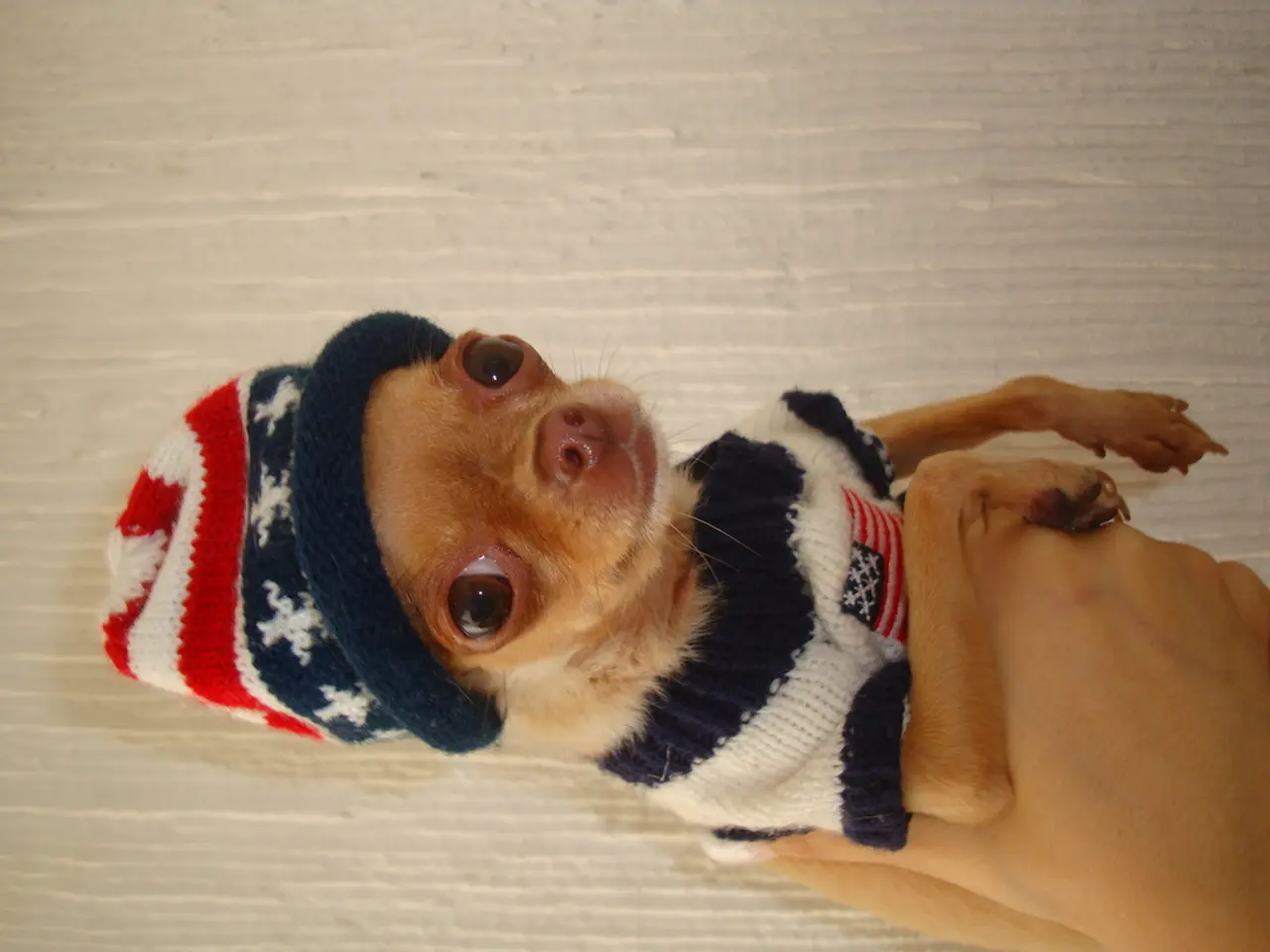Tips for a Shiny Dog's Fur: 8 Methods and Techniques to Explore
In the world of canine companionship, a dog's coat is more than just a physical feature - it's a testament to their overall health and wellbeing. Here are some key points to consider when maintaining your furry friend's coat in top condition.
Firstly, it's essential to understand that dogs who suffer from allergies often experience an upregulation of inflammation in their skin. This inflammation can lead to redness, itchiness, and poor coat health. If your dog exhibits these symptoms, it might be a sign of an underlying allergy that requires attention.
When it comes to bathing your dog, avoid using harsh soaps like dish soap. These can deplete a dog's skin of its natural fatty barrier, leaving their coat and skin dull and dry. Instead, opt for a mild shampoo specifically formulated for dogs, and follow up with a nourishing conditioner to keep their coat soft, smooth, and shiny.
Parasite prevention is another crucial aspect of maintaining a dog's skin health. Providing consistent protection against fleas and ticks is not only important for preventing life-threatening illnesses but also for ensuring your dog's coat remains in good condition. Internal parasites, such as hookworms and roundworms, can diminish a dog's coat quality by leaching nutrients from their hosts.
Regular brushing is also vital, regardless of whether your dog has a short or long coat. Brushing helps remove debris, stimulates cell turnover, and reduces shedding, strengthening the human-animal bond. Dogs with long hair and double coats, like German Shepherds, require brushing several times a week, using a brush specifically formulated to reach their undercoat.
Allergies can lead to a snowball effect of worsening skin disease and poor coat health, and must be managed long term. Regular cardiovascular activity also improves circulation, enhancing overall health and the quality of a dog's skin and coat.
Lastly, the most important fatty acid for dog skin and skin health that should be included in high-quality dog food is Omega-3 fatty acids. These essential nutrients play a vital role in maintaining a dog's skin's health and can help improve the quality of their coat.
If your dog's coat remains lackluster or they develop any other signs of illness, it's a good idea to consult your veterinarian. A dull, dry coat or flakey, crusty skin can be signs of an internal medical issue. By following these tips, you can help ensure your dog's coat stays healthy and radiant, reflecting their inner happiness.
Read also:
- Peptide YY (PYY): Exploring its Role in Appetite Suppression, Intestinal Health, and Cognitive Links
- Toddler Health: Rotavirus Signs, Origins, and Potential Complications
- Digestive issues and heart discomfort: Root causes and associated health conditions
- House Infernos: Deadly Hazards Surpassing the Flames








